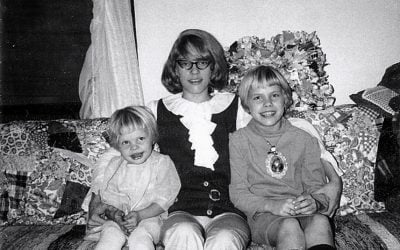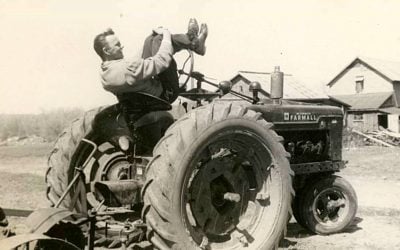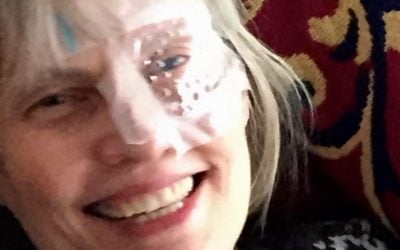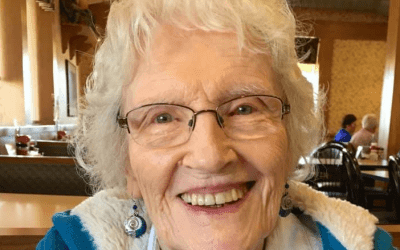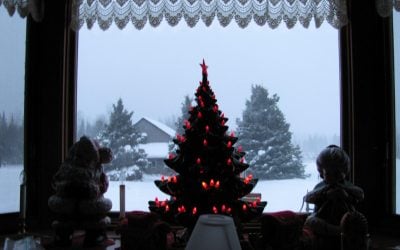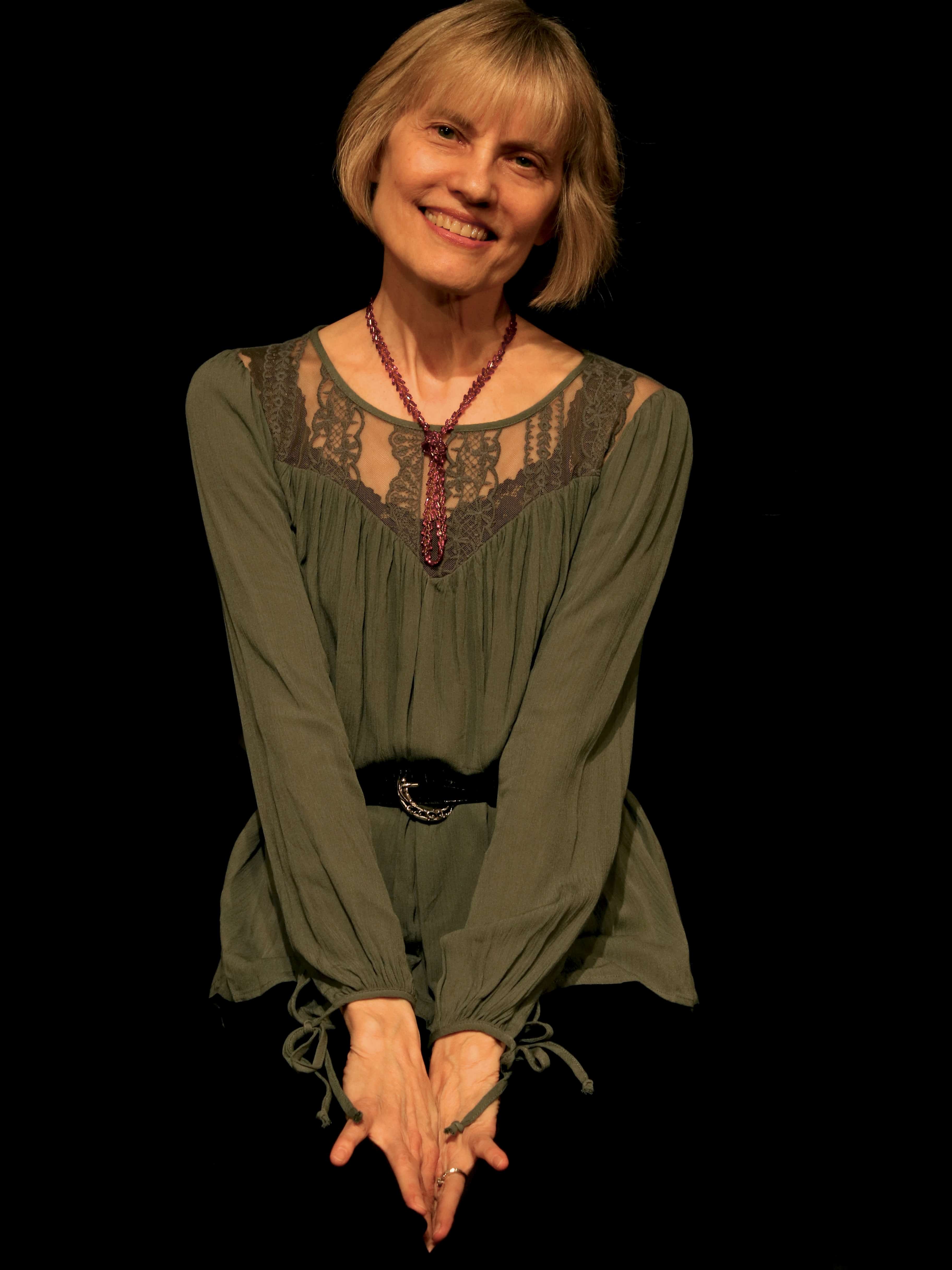Rocks & Roots
Donna Salli
Their Grandmother’s Couch – On Memory and What Beckons
On the wall at my grandparents’ house hung a picture—a night scene with a wolf on a hillside, a reproduction of a painting by Alfred Kowalski. I was drawn to it, would gaze into it and imagine the story of that wolf. When I grew up and wrote a novel, I put the Kowalski print into it—hung it on the wall at a character’s house. Details from my life show up often in my writing, especially from childhood. The things that surrounded us when we were young stay with us. Occasionally, they’ll shimmer into conscious memory, beckoning with a gentle hand, calling our attention. Consider the photo at the top of this post, taken years and years ago of three girls on their grandmother’s couch. Those girls are my sisters and I.
Love Song, to My Father
My father, Oiva, has been gone from this world for five years, and I think of him every day. When I got married, in my early twenties, my husband and I gave our parents matching wood-and-metal wall ornaments in the shape of a cross, and my folks hung theirs on the wall in their bedroom, where it stayed for nearly forty years. I took it down from its nail when Mom sold the farm after Dad passed, and she told me to take it—it was mine. Now, at the start of each day, I touch that cross and speak aloud to my dad. It’s a ritual, a sort of love song to my father. There’s something of him there, in the metal and wood: his spirit, absorbed over decades.
The Good Girl and the Cedar Tree (Or, Sex, God, and Guns)
The cover of my novel, A Notion of Pelicans, might suggest it’s a romance. Bear with me. My interest here isn’t really my book. The novel does have romantic overtones. It weaves together sex, God, and guns—illicit sex, an elusive God, and a fear of guns. I was raised to be a good girl, with little notion of my sexuality. It was a jolt to realize, sometime during adolescence, that I didn’t want to be a good girl. I didn’t want to be a bad girl either—didn’t want to live out any sort of narrow definition. My hopes and desires were more complicated than that.
The Blurred Border: On Sight, and Seeing
Taping a plastic guard over your eye is a trip, in that 1960s, mind-altering sense. You’re disoriented, more aware of your body, and strangely more daring. I suppose if I wanted a polished authorial image, I wouldn’t show you the picture at the top of this post. But it’s truthfully me. I had eye surgery a couple weeks ago to implant a new lens. My husband took the photo after we got home. I was sleepy and had put the guard on to protect my eye if I dozed off. I love everything about this photo! I’m groggy from anesthesia, a bit goofy-looking. What I love most is that I’m out-of-focus, and it’s the colorful lap throw over the back of the sofa that anchors the image. The picture is grainy, sudden, but it captures my experience of life. I live blurred, on a border. On one side is what my eyes see, on the other what I sense. Two kinds of seeing, and I’m not sure which is clearer.
A Daughter of My Mother: On Women, Earrings, and Architecture
I write mostly for women. I’ve been doing it since the first time I set pen to paper, the summer after high school. I began a novel that summer, based on my maternal grandparents’ lives, from the point of view of my grandmother. I only wrote a few chapters, but I still have the hand-written manuscript, in pencil no less. Once I got to college and began taking writing classes, I came to see that, for many, my writing for women would make me seem less serious as a writer. I kept doing it anyway—determined to figure out a way to interweave women and seemingly masculine concerns like architecture. I also decided to keep writing about grandmothers. I’d heard classmates disparage grandmother poems, and it rankled me. Stubbornness? Independence? Yes, but I did it mostly because I am a daughter of my mother.
When Only Poetry Will Do: Light in the Dark Season
I’m feeling the need for poetry lately. This week is the most poignant week of my year—mid-December, the dark season, with long nights and two anniversaries of loss. During this week, on different years, I lost my grandmother and my father. Each year as those anniversaries approach, I feel a growing quiet inside—it’s heart-centered, gentle, like a shadow half glimpsed. For years I didn’t understand what was at the root of my December mood, but now I do. And that’s when only poetry will do.

